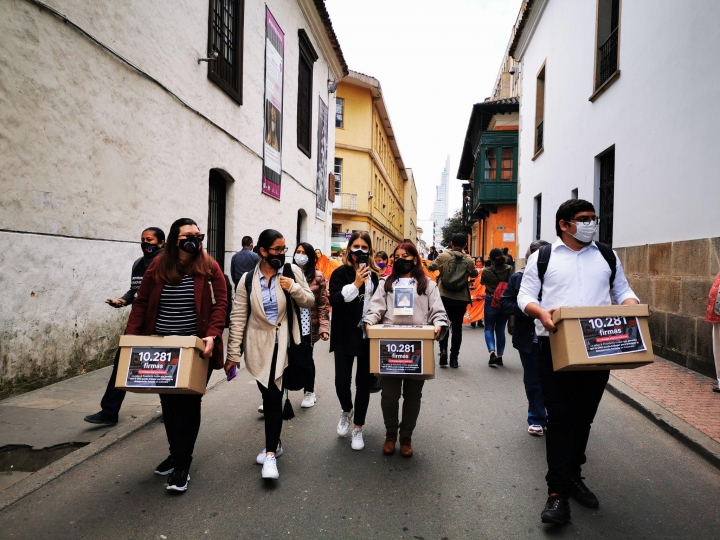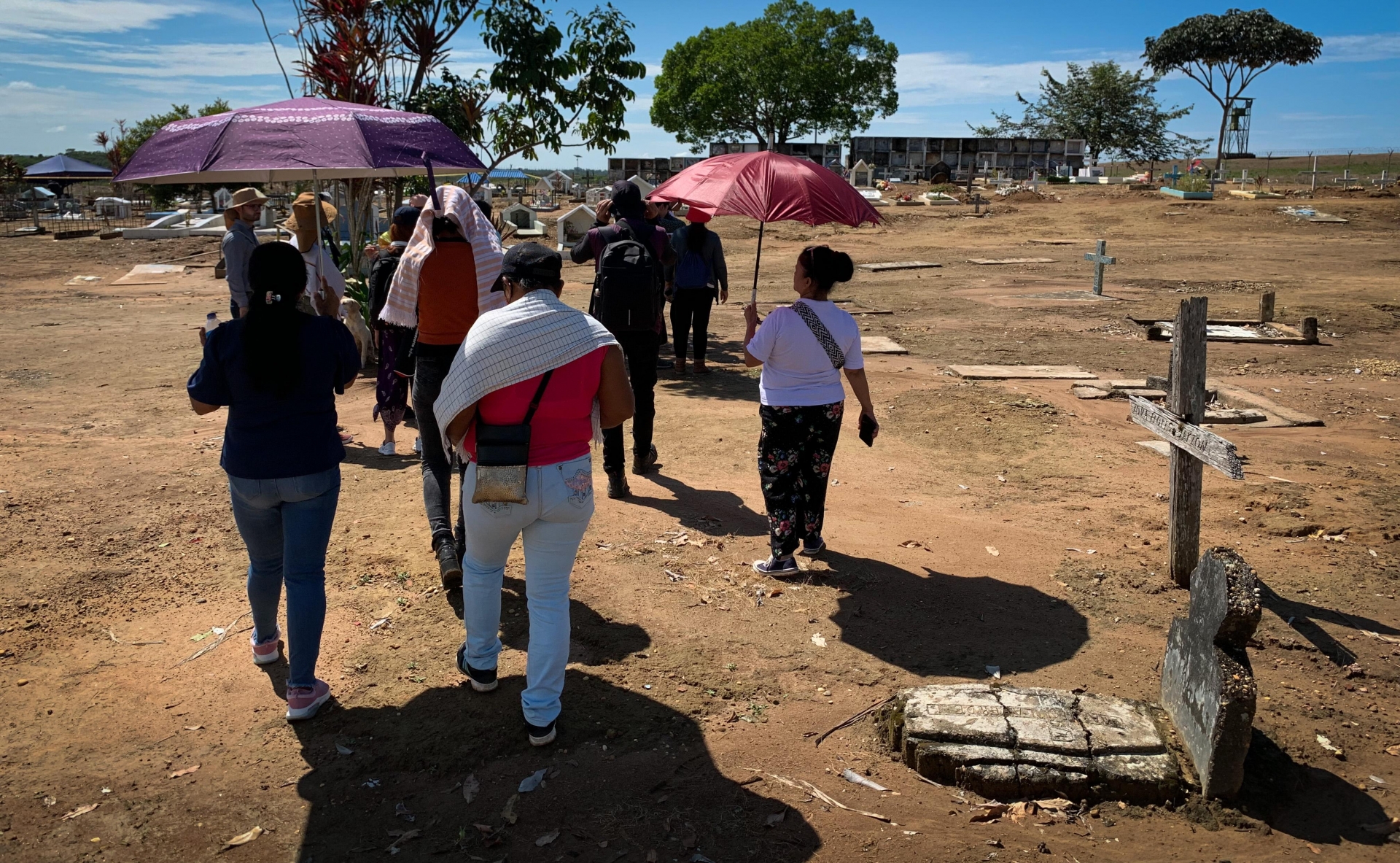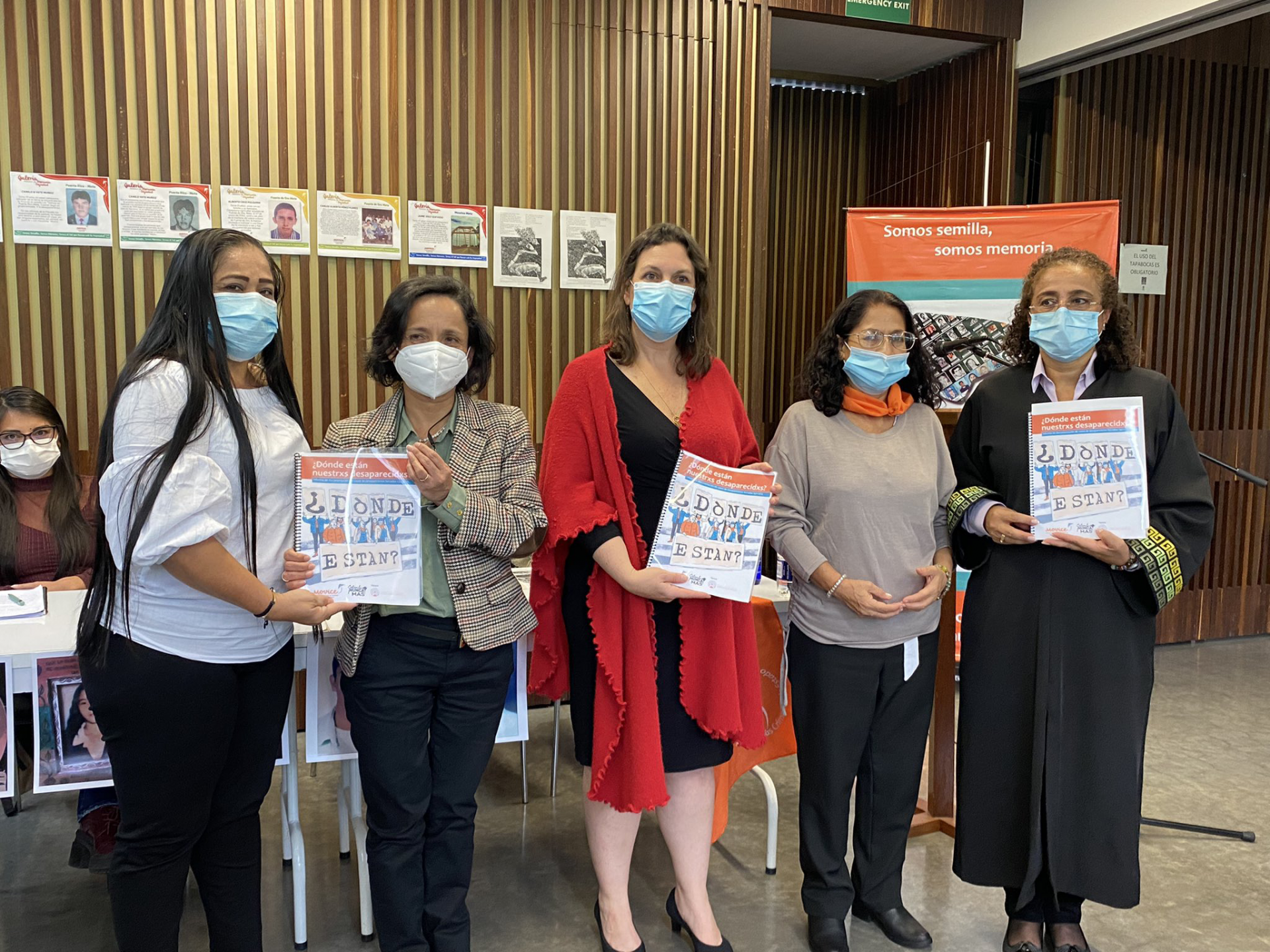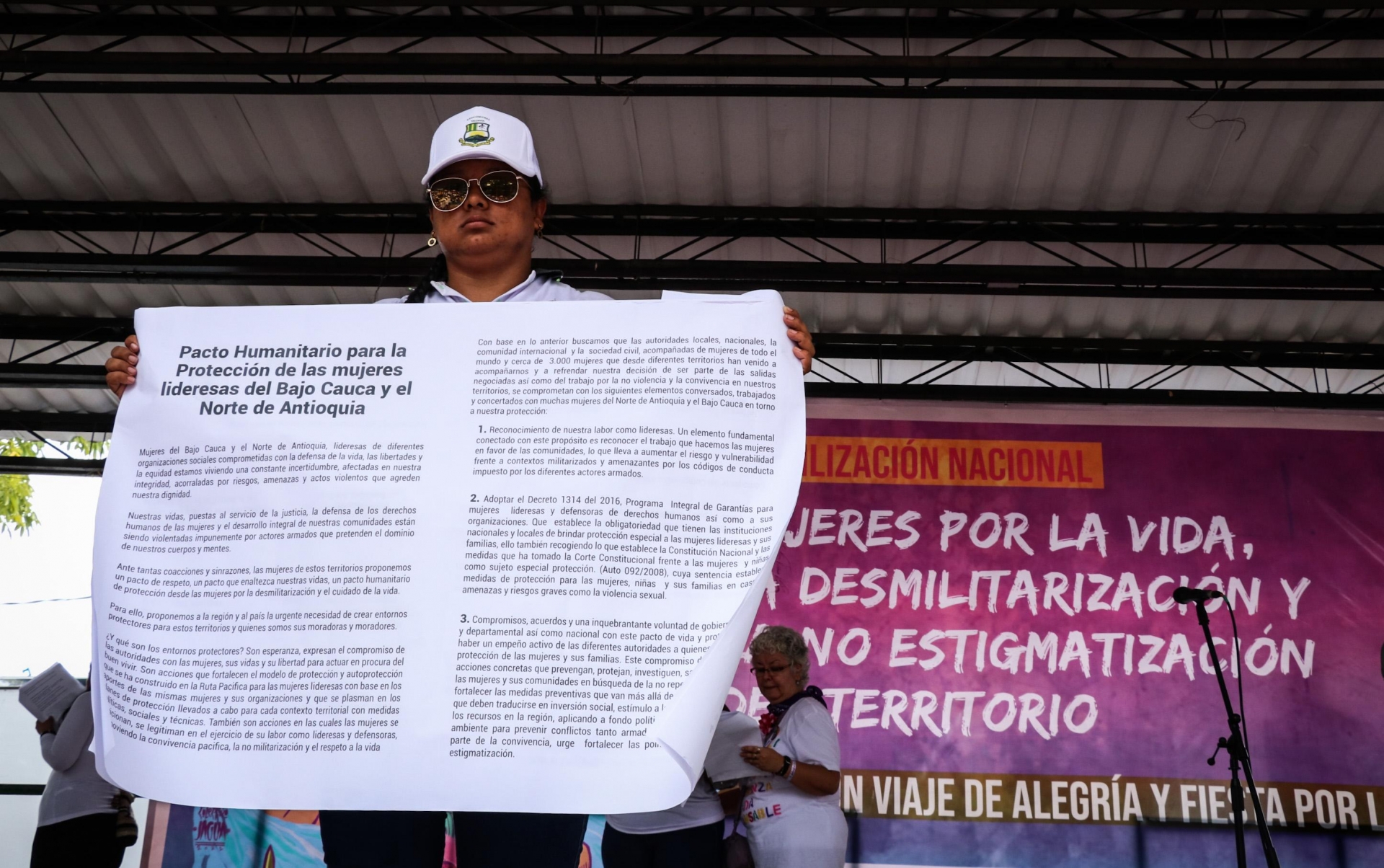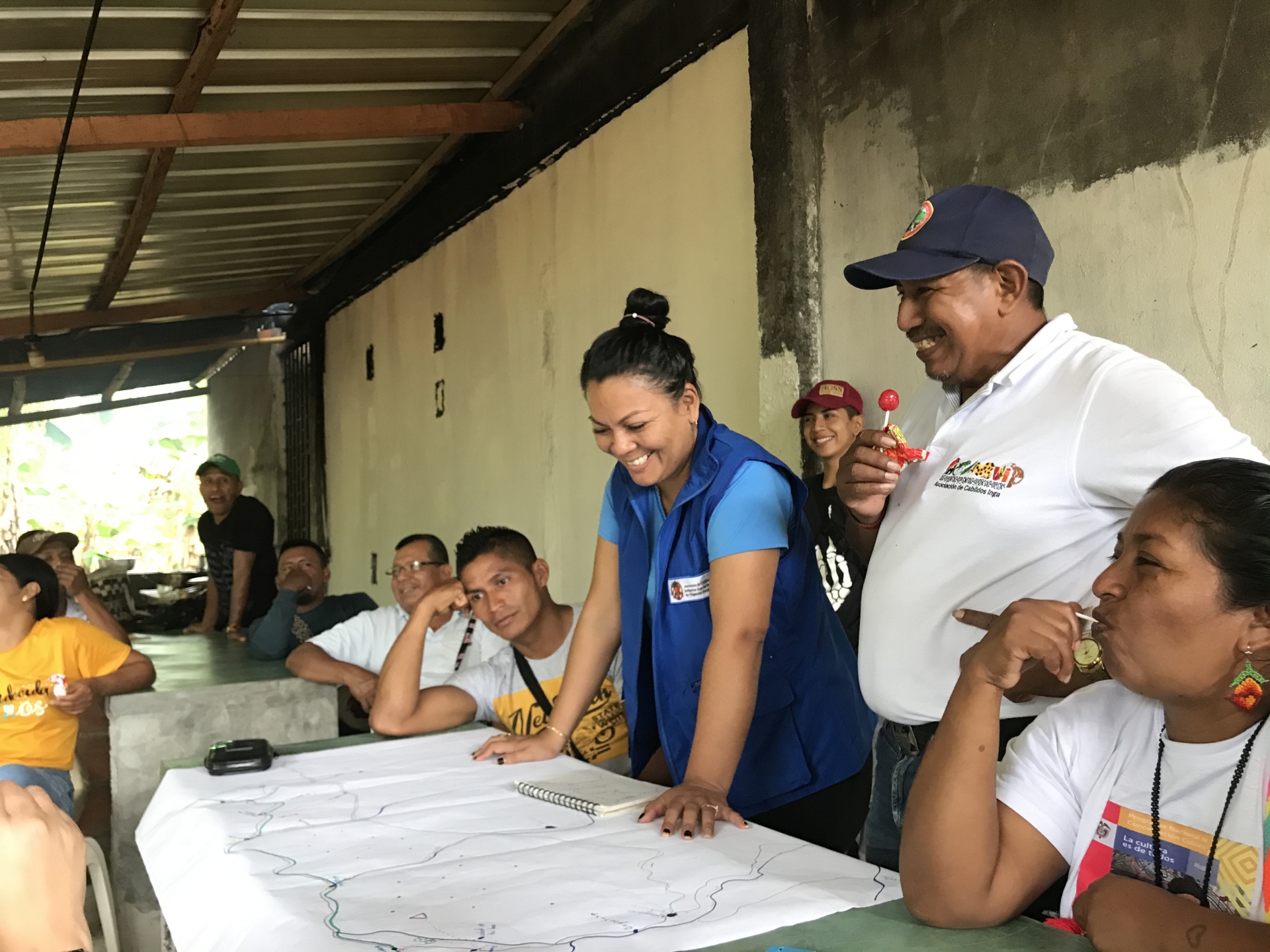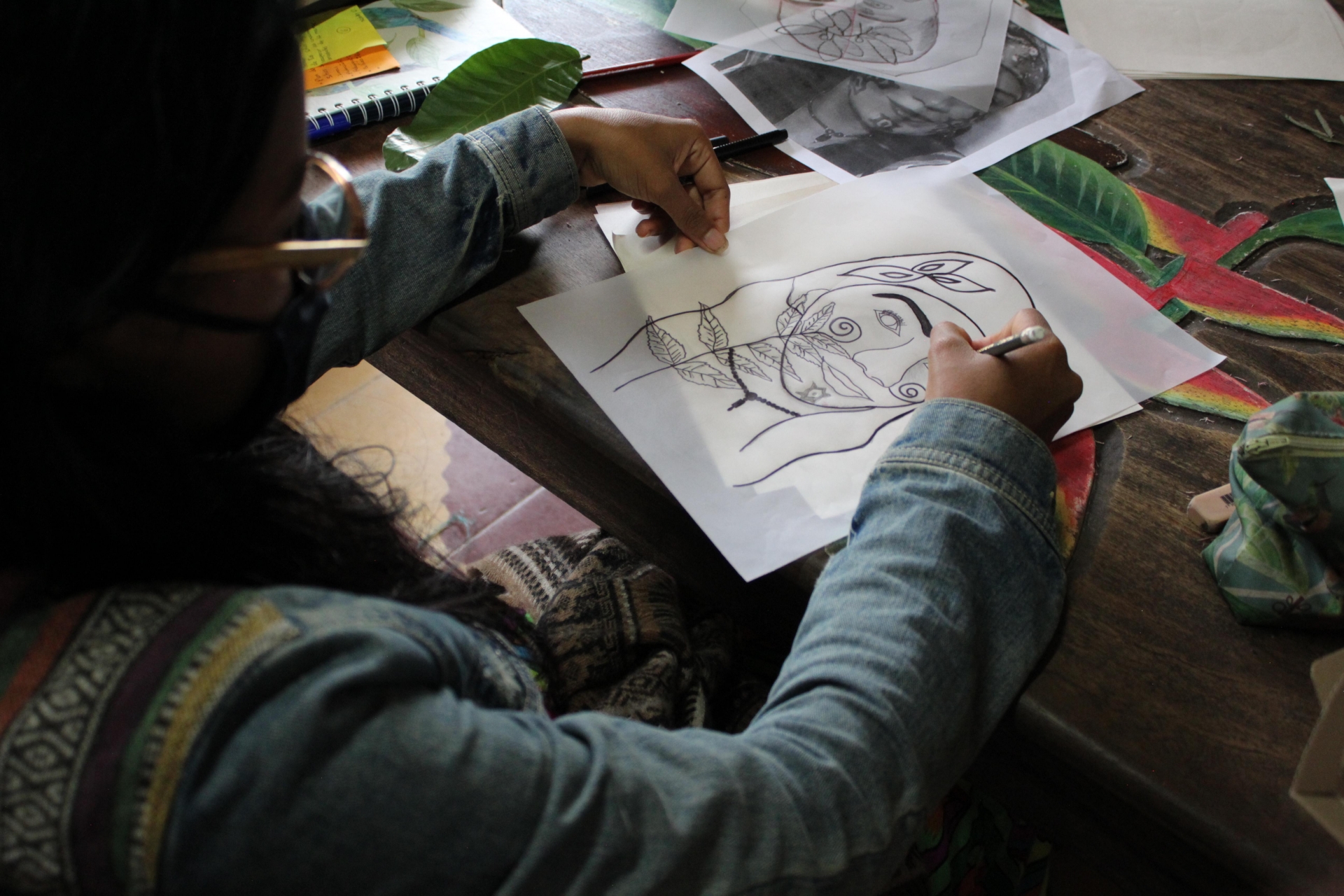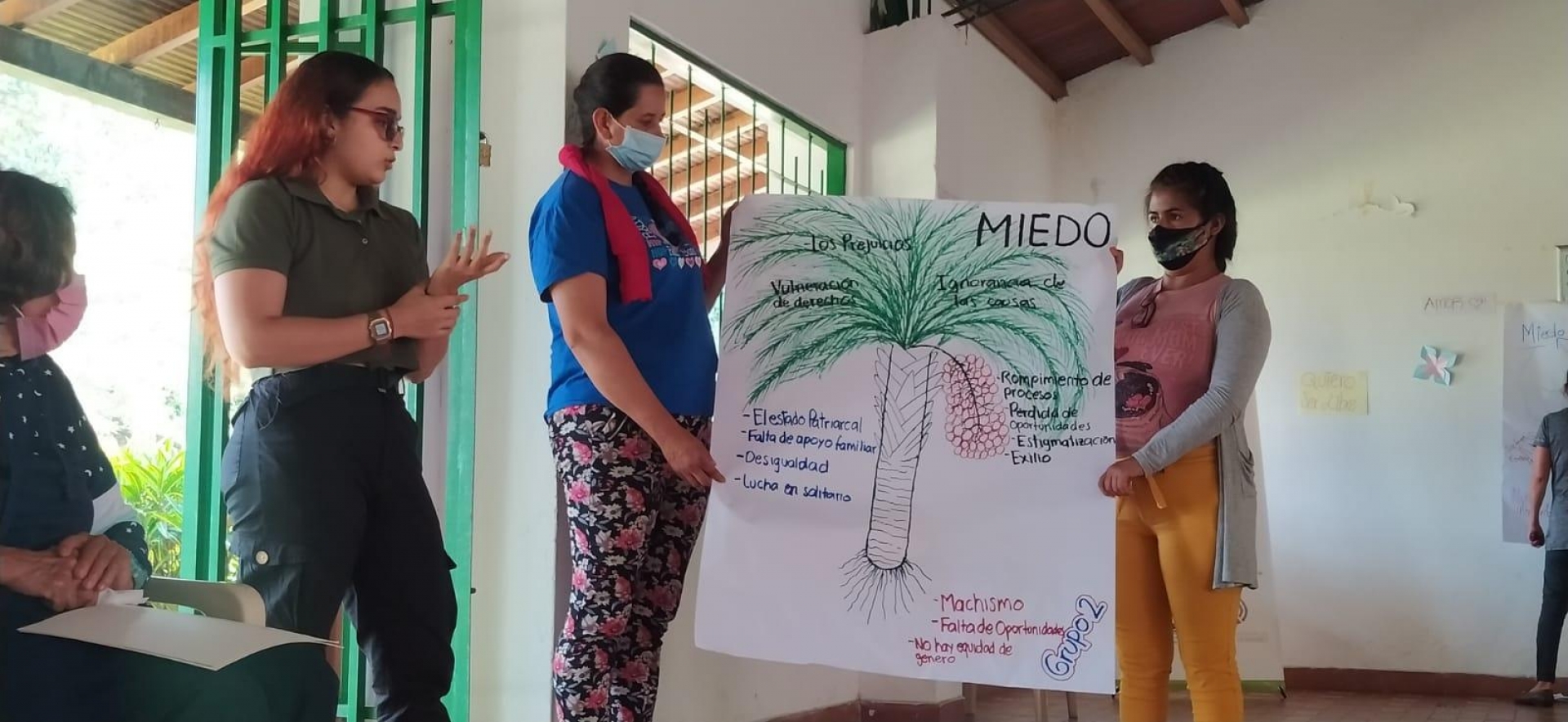The work of civil society organisations has been key in advancing human rights and environmental issues, as well as in peacebuilding. In Colombia, more than 40 organisations and collectives supported by the NHRF are implementing various initiatives in defence of their rights.
The NHRF's support "has made it possible to make visible the patterns of criminality of the State, through concrete actions such as the presentation of complaints to the Integral System for Peace, and the opening of investigations of high-ranking officials involved in serious violations", adds the José Alvear Restrepo Lawyers' Collective (CAJAR).
Peacebuilding, the fight against impunity and access to justice
The Colombian peace agreement that put an end to more than five decades of conflict with one of the oldest guerrillas in the region is currently experiencing a moment of uncertainty due to the lack of implementation. According to a report by human rights platforms, to date only 4% of what has been agreed has been carried out.
"[But] despite the difficulties, we, the victims, cherish the hope of a different country" Social organisations from the territories affected by the armed conflict say.
Social organisations and collectives are working hard to achieve progress on this historic agreement that represented a step forward for Colombian society. 30 organisations supported by the NHRF have achieved progress in the procedures and decisions of the entities that make up the Integral System for Peace -a mechanism that guarantees the rights of the victims of the conflict.

